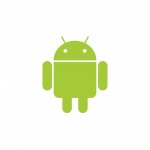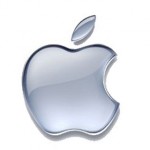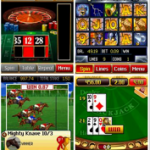Apple to allow online gambling apps?

In a surprise move, Betfair has just added a sports betting app to Apple’s iPhone store, breaking down Apple’s anti-gambling policy. The new app uses geolocation and age verification to ensure only players who are allowed to bet on sports are able to do so. Apple has yet to offer an official statement, so it is possible that the app just slipped under the radar.
Geek.com: Did Apple just greenlight online gambling on the App Store?
You can’t have sex or nudity at the Apple App Store, but now you can bet on sports using your iPhone. Either this app submission slipped under the Apple censors’ radar, or they have relaxed their policies in order to make more types of software available.
Whichever the case may be, Betfair has just become the first gambling group to have its betting software (called Betfair Client) available at the store. According to EGR Mag, this development ushers in a new era for iPhone users:
Betfair’s mobile chief claims that Apple imposed “no terms and conditions” to regulate gambling applications. Despite this, the app only works in the UK and Ireland.
Apple has been very restrictive lately about what apps it allows, especially when they show skin or offer adult themes. They even removed apps provided by underwear sellers because they included images of scantily-clothed men and women in their shopping apps.
eGamingReview: Betfair gambling app marks Apple turnaround
Betfair recently became the first major online betting company to offer a gambling application through Apple’s iPhone App Store, marking a new stance on gambling apps from Apple.
The downloadable app, which Betfair’s exchange product, marks a change in Apple’s policies regarding gambling apps, which have not been allowed in the past.
Charles Palmer, head of Betfair mobile said: “There were no terms and conditions about gambling. We approached Apple with the proposal and our app, showing it does the normal KYC and age verification.”
The app is only available to customers in the UK and Ireland, and uses the iPhone’s built-in GPS to make sure bets are only placed from these areas.
“We have also added the ability to locate where the customer is. It can tell if you are in the UK or Ireland, and if you’re not, it won’t function. We put that in there as an extra precaution – they didn’t request that,” he said.
Computer Weekly: BetFair puts iPhone gaming app into Apple App Store
BetFair, one of the world’s biggest online sports betting operators, just launched an iPhone app that allows punters to bet on sports while on the move.
The launch is part of an attempt by BetFair to “mobilise” its business. The company already supports browser-based apps on Symbian, Blackberry, and Android, and they are working on spreading out even more.
The new app gives the company fine control over authentication and verification of bettors, making it almost impossible for under-age people to place bets. It also uses the iPhone’s GPS locator to only allow bets to be placed from authorized jurisdictions.
According to BetFair, mobile customers are up 40% from last year, with revenues from mobile customers up a full 50%.


In a surprise move, Betfair has just added a sports betting app to Apple’s iPhone store, breaking down Apple’s anti-gambling policy. The new app uses geolocation and age verification to ensure only players who are allowed to bet on sports are able to do so. Apple has yet to offer an official statement, so it is possible that the app just slipped under the radar.
Geek.com: Did Apple just greenlight online gambling on the App Store?
You can’t have sex or nudity at the Apple App Store, but now you can bet on sports using your iPhone. Either this app submission slipped under the Apple censors’ radar, or they have relaxed their policies in order to make more types of software available.
Whichever the case may be, Betfair has just become the first gambling group to have its betting software (called Betfair Client) available at the store. According to EGR Mag, this development ushers in a new era for iPhone users:
Betfair’s mobile chief claims that Apple imposed “no terms and conditions” to regulate gambling applications. Despite this, the app only works in the UK and Ireland.
Apple has been very restrictive lately about what apps it allows, especially when they show skin or offer adult themes. They even removed apps provided by underwear sellers because they included images of scantily-clothed men and women in their shopping apps.
eGamingReview: Betfair gambling app marks Apple turnaround
Betfair recently became the first major online betting company to offer a gambling application through Apple’s iPhone App Store, marking a new stance on gambling apps from Apple.
The downloadable app, which Betfair’s exchange product, marks a change in Apple’s policies regarding gambling apps, which have not been allowed in the past.
Charles Palmer, head of Betfair mobile said: “There were no terms and conditions about gambling. We approached Apple with the proposal and our app, showing it does the normal KYC and age verification.”
The app is only available to customers in the UK and Ireland, and uses the iPhone’s built-in GPS to make sure bets are only placed from these areas.
“We have also added the ability to locate where the customer is. It can tell if you are in the UK or Ireland, and if you’re not, it won’t function. We put that in there as an extra precaution – they didn’t request that,” he said.
Computer Weekly: BetFair puts iPhone gaming app into Apple App Store
BetFair, one of the world’s biggest online sports betting operators, just launched an iPhone app that allows punters to bet on sports while on the move.
The launch is part of an attempt by BetFair to “mobilise” its business. The company already supports browser-based apps on Symbian, Blackberry, and Android, and they are working on spreading out even more.
The new app gives the company fine control over authentication and verification of bettors, making it almost impossible for under-age people to place bets. It also uses the iPhone’s GPS locator to only allow bets to be placed from authorized jurisdictions.
According to BetFair, mobile customers are up 40% from last year, with revenues from mobile customers up a full 50%.

Android, OS 4 and Symbian: Who’s Got Game?



Mobile gaming is nothing new. Even the most rudimentary phones sold today come with a few titles that users can click though in their spare time. Recently, however, mobile technology has reached the point that gaming on-the-go is becoming incredibly advanced, incorporating things like accelerometers, touchscreen interfaces, and 3D graphics accelerators into games to provide a much more engaging user experience.
While mobile telephones have yet to approach the capabilities of dedicated gaming platforms like the Sony PSP or Nintendo DS, they nonetheless offer impressive gaming potential. We took a look at the three biggest names in mobile phone firmware – Google’s Android, Apple’s OS 4, and the open-source alternative Symbian. Our goal was to answer one simple question: which mobile operating system is better for mobile gaming?
For each system, we looked at two types of games – dedicated and online. Dedicated games are anything written specifically for that platform; these usually need to be purchased, downloaded and installed in order to be enjoyed. Online games are just that – they’re out there on the internet, and users just have to point their phone’s web browser at them in order to play. These web games use either flash or java technology, and can range from simple Tetris clones to real-money casino games like slots, poker, or blackjack.

Android
Released in October of 2008, Google’s Android mobile operating system is based on a Linux kernel. As of early 2010, it is the fourth most popular smartphone platform, at least in the US.
The Android OS supports both accelerometer and multi-touch interaction. It offers excellent graphics capabilities, especially when it comes to its 3D rendering potential. Games like the popular HomeRun Battle 3D really show what the device is capable of. Visually, Android games can rival the Nintendo DS, and devices that offer a touch-screen interface make the comparison even more apt.
Online gaming on the Android suffers. Its java support is mediocre, and as of yet, it does not support flash, so most online games won’t even run on Android devices. Fortunately, full flash support has been promised with the v2.2 update, due out later this year.
- Pros
- Excellent graphics capabilities
- Multi-touch and accelerometer support
- Cons
- Lack of available games
- Very poor web game support

Apple OS 4
Apple’s upcoming update to their iPhone, iPad and iPod Touch software has been making headlines recently. It offers several great updates to the existing version, most notably its multitasking capabilities.
For gamers, however, not much is new. Apple has been shouting about the new Game Center, but users seem less excited. It’s basically a clone of Xbox Live, offering multiplayer gaming over networks. While Apple is in the lead in this department, we will have to wait to see how this pans out.
Beyond the new Game Center, OS 4 supports an enormous variety of downloadable games, available through the Apple Apps Store. Many are free, and those that aren’t come very cheap. The variety is outstanding, and the quality is often jaw-dropping, especially when enjoyed on an iPad.
As for online gaming, OS 4 fares quite well. Despite its lack of flash, there are many dedicated iPhone games that can be played instantly on the internet. In addition to many 3rd party providers, Apple hosts a huge selection of “official” web apps on its homepage.
- Pros
- Incredible number of downloadable and web-based games
- Multi-touch and accelerometer support
- Cons
- No flash support (maybe never)
- Games can be expensive

Symbian
This open-source smartphone platform has been in development for a while, but its code was just released in February 2010. Nearly half of all smartphones sold are based on the Symbian OS, making it the world’s most popular mobile operating system.
Most devices out there still run on older Symbian versions. In fact, at the time of writing this, only one device supports the new Symbian^3 – the Nokia N8. Its touch screen, HD screen and 3D graphics accelerator beg for hardcore games to push its limits.
Unfortunately, Symbian is behind the times, and has quite a lot of catching up to do before it can compete with Google or Apple for a top spot in the mobile market. Yes, the numbers are in Symbian’s favor, but if we look at quality over quantity, it comes in last.
Oh yeah, games – Symbian offers excellent java support, making it good for web-based games, but since most Symbian devices don’t offer touch screens, they can be cumbersome to play. Dedicated games for the Symbian are rare, and tend to look and play like the best games from five years ago.
- Pros
- Widespread availability, high device compatibility
- Excellent java support makes web gaming easy
- Cons
- Most phones run old versions
- Not much available in the way of download games
The verdit?
It’s hard to say. Symbian falls gently into 3rd place, that much is clear, but Apple’s OS 4 and Google’s Android battle hard for the number one spot. Apple definitely has the “wow factor” going for it, and the number of games available is astonishing, but with Android getting flash with the next update, it will offer something that iPhone users have been after for years.
At the end of the day, we are tempted to call Apple OS 4 the winner of the mobile telephone gaming war, but the world moves fast, and Android is catching up fast.




Mobile gaming is nothing new. Even the most rudimentary phones sold today come with a few titles that users can click though in their spare time. Recently, however, mobile technology has reached the point that gaming on-the-go is becoming incredibly advanced, incorporating things like accelerometers, touchscreen interfaces, and 3D graphics accelerators into games to provide a much more engaging user experience.
While mobile telephones have yet to approach the capabilities of dedicated gaming platforms like the Sony PSP or Nintendo DS, they nonetheless offer impressive gaming potential. We took a look at the three biggest names in mobile phone firmware – Google’s Android, Apple’s OS 4, and the open-source alternative Symbian. Our goal was to answer one simple question: which mobile operating system is better for mobile gaming?
For each system, we looked at two types of games – dedicated and online. Dedicated games are anything written specifically for that platform; these usually need to be purchased, downloaded and installed in order to be enjoyed. Online games are just that – they’re out there on the internet, and users just have to point their phone’s web browser at them in order to play. These web games use either flash or java technology, and can range from simple Tetris clones to real-money casino games like slots, poker, or blackjack.

Android
Released in October of 2008, Google’s Android mobile operating system is based on a Linux kernel. As of early 2010, it is the fourth most popular smartphone platform, at least in the US.
The Android OS supports both accelerometer and multi-touch interaction. It offers excellent graphics capabilities, especially when it comes to its 3D rendering potential. Games like the popular HomeRun Battle 3D really show what the device is capable of. Visually, Android games can rival the Nintendo DS, and devices that offer a touch-screen interface make the comparison even more apt.
Online gaming on the Android suffers. Its java support is mediocre, and as of yet, it does not support flash, so most online games won’t even run on Android devices. Fortunately, full flash support has been promised with the v2.2 update, due out later this year.
- Pros
- Excellent graphics capabilities
- Multi-touch and accelerometer support
- Cons
- Lack of available games
- Very poor web game support

Apple OS 4
Apple’s upcoming update to their iPhone, iPad and iPod Touch software has been making headlines recently. It offers several great updates to the existing version, most notably its multitasking capabilities.
For gamers, however, not much is new. Apple has been shouting about the new Game Center, but users seem less excited. It’s basically a clone of Xbox Live, offering multiplayer gaming over networks. While Apple is in the lead in this department, we will have to wait to see how this pans out.
Beyond the new Game Center, OS 4 supports an enormous variety of downloadable games, available through the Apple Apps Store. Many are free, and those that aren’t come very cheap. The variety is outstanding, and the quality is often jaw-dropping, especially when enjoyed on an iPad.
As for online gaming, OS 4 fares quite well. Despite its lack of flash, there are many dedicated iPhone games that can be played instantly on the internet. In addition to many 3rd party providers, Apple hosts a huge selection of “official” web apps on its homepage.
- Pros
- Incredible number of downloadable and web-based games
- Multi-touch and accelerometer support
- Cons
- No flash support (maybe never)
- Games can be expensive

Symbian
This open-source smartphone platform has been in development for a while, but its code was just released in February 2010. Nearly half of all smartphones sold are based on the Symbian OS, making it the world’s most popular mobile operating system.
Most devices out there still run on older Symbian versions. In fact, at the time of writing this, only one device supports the new Symbian^3 – the Nokia N8. Its touch screen, HD screen and 3D graphics accelerator beg for hardcore games to push its limits.
Unfortunately, Symbian is behind the times, and has quite a lot of catching up to do before it can compete with Google or Apple for a top spot in the mobile market. Yes, the numbers are in Symbian’s favor, but if we look at quality over quantity, it comes in last.
Oh yeah, games – Symbian offers excellent java support, making it good for web-based games, but since most Symbian devices don’t offer touch screens, they can be cumbersome to play. Dedicated games for the Symbian are rare, and tend to look and play like the best games from five years ago.
- Pros
- Widespread availability, high device compatibility
- Excellent java support makes web gaming easy
- Cons
- Most phones run old versions
- Not much available in the way of download games
The verdit?
It’s hard to say. Symbian falls gently into 3rd place, that much is clear, but Apple’s OS 4 and Google’s Android battle hard for the number one spot. Apple definitely has the “wow factor” going for it, and the number of games available is astonishing, but with Android getting flash with the next update, it will offer something that iPhone users have been after for years.
At the end of the day, we are tempted to call Apple OS 4 the winner of the mobile telephone gaming war, but the world moves fast, and Android is catching up fast.













